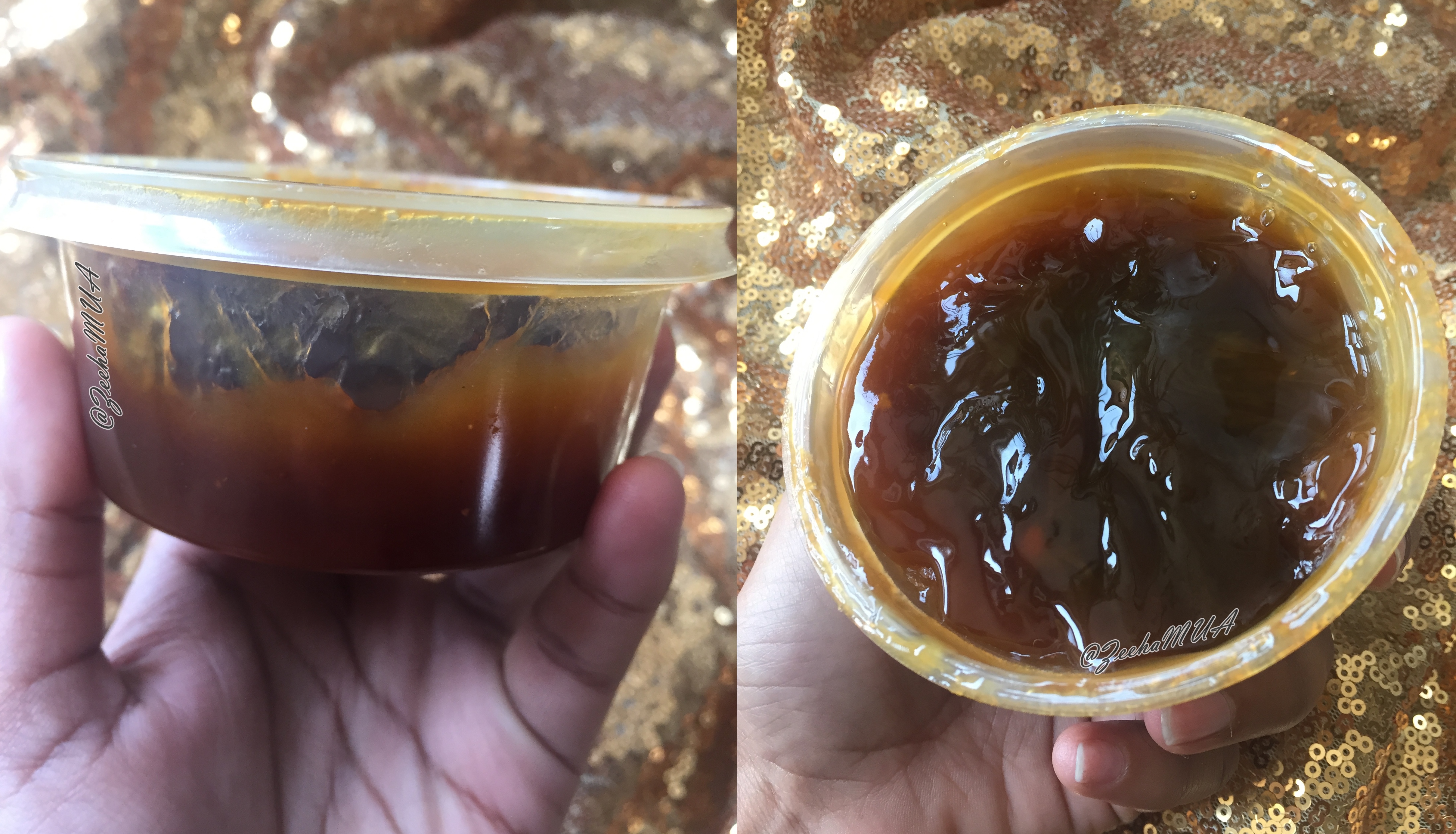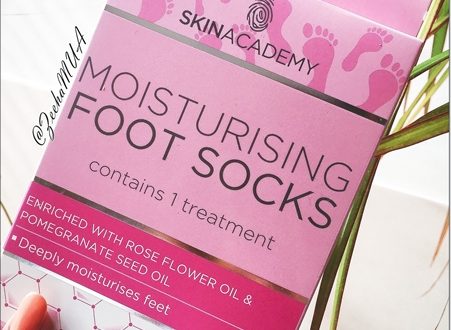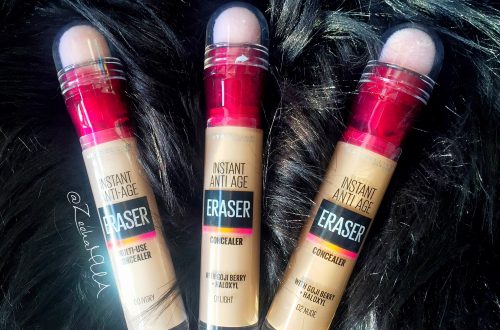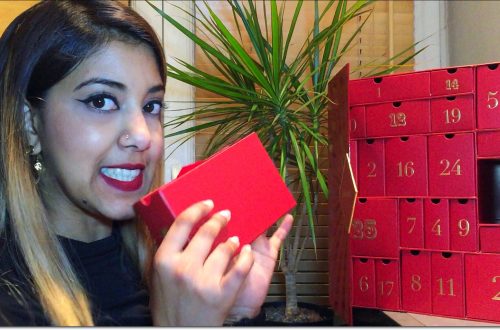Hola lovelies ❤ My story with the Black Soap started when I recently moved to Belgium and my skin started to become dry really quickly. Being somebody with brown skin from a tropical island, as soon as you move to a cold one, your body is not really happy with that kind of change. It looks for the sun and warmth everyday and, if it doesn’t find it, it starts peeling your skin off. So dramatic but so not pleasant…
I found out about the Black Soap when I was talking to my beautician about my dry skin issues. Being a Moroccan who moved to Belgium too, I heeded her advice. As you see below, the one that I bought and consequently, started using, is not branded or anything but homemade (found out later that it is very easy to prepare yours – I’ll put in the details at the end of the post).
So, what is it? The Black Soap or African Black Soap like its name says, originates from Africa and to be more precise, Ghana. As you saw, the raw soap is not actually black but more like a brownish, rusty color. The one that I use (above) is the liquid state but you can obtain it as a soap bar and they are both very easy and practical to use. It is a 100% natural product, mainly vegetable oil, crushed black olives, potash and sometimes salt with no chemicals, no preservatives, no colorants and no fragrance. If you are getting one, make sure it does not have artificial ingredients so that you benefit from the natural product itself.
First impression: The texture is very jelly-like, you take a little into your hands and it just foams nicely. It is said to be fragrance-free but as it has natural ingredients and herbs in it, it has a particular smell. It is difficult to explain, it’s like a mixture of grass, plastic, dried raisins, etc. I know, all this does not look inviting, but the smell is not disturbing or sickening. The positive side of this is that there is no fragrance when you get out of your shower or after you’ve dried yourself.

Testing it: When you are cleaning up after soaping, you’ll directly feel under the water that your skin is smooth and after drying yourself up, you’ll see that your skin is shiny and no longer dry. Immediate moisturization! Positive results after the first use itself! 😁 Please excuse the black spots and bumps on my legs, I know they aren’t that pretty but real, because of my first uses of razor for shaving my legs 😢


My continued use: At first, to regain my normal skin balance, I used the Black Soap every day for approximately a month, I would say, and started reducing it to once in two days only because I just wanted to continue using my other body cares 🤷. It can also be used as an exfoliator; I go with my Loofah glove (it is a glove especially made of natural vegetable fibers) and it works wonders. I’ll talk about those gloves in another post because, wrongly used, they can be a painful experience.
My rating: ![]() – I just love it!
– I just love it!
What to avoid:
- Getting water into the jar if you are using the liquid one, it will make the soap watery, no longer jellified and surely, lose its benefits.
- Getting it into your eyes… This thing hurts as hell! I, once, was washing my face with the soap and opened an eye by mistake, of course 🤷, and I felt my eye buuuurrrrrnnn. It burnt for like half an hour and the whole day it was hurting. Just to tell you, don’t.
The so-many benefits of the Black Soap
- First and most important of all, every skin type can benefit!
Dry-skinned people, this will hydrate your skin. Oily-skinned peeps, it is excellent for greasy epidermis as it will not only moisturize your skin but also help to appropriate and balance the overactive sebaceous glands.
- It is a natural skin cleanser
As mentioned above, it is naturally antimicrobial, it will clean your face and body without stripping natural oils from your skin.
- Scars and blemishes minimizer and treats acne!
It is great for reducing the looks of acne scarring, stretchmarks and evidence of previous pores and skin wounds.
- Minimizes fine lines and wrinkles
- Evens your skin tone
Hyper-pigmentation (which is the darkening of a location of your skin) can be induced by sun damage, acne, infection and other skin area injuries that raise the creation of melanin and if it increases irregularly, this may bring about dark circles under the eyes, liver locations and other areas of discolored skin. What the black soap does? It has the capacity to absorb UV light, offering some added cover from sun damage that triggers dark spots to appear.
- Combats eczema
The black soap is enriched with lots of natural ingredients like coconut essential oil, Shea butter or red palm oil, that can counter irritation, provide profound hydration while relaxing the bloating and pain that often accompanies an eczema flare-up.
- Scalp treatment
Dry skin area, shampooing too often, using tons of styling products and dermatitis can cause flaky dandruff on the head. Yes, the black soap can remove this flaky build-up but remember to finish your shampoo by rinsing with apple cider vinegar to help detangle and soften your tresses.
For greasy hair, dilute a tiny amount of the soap with water and allow it permeate the head for ten minutes. For normal or dried out hair, dilute with a conditioning oil like coconut essential oil, extra virgin essential olive oil or Shea butter and rinse out away immediately after massaging it into the scalp.
- A natural anti-fungal
African black soap can be used to care for an athlete’s feet, nail fungus, ‘jock itch’, ringworm and candida overgrowth.
Feeling crafty? Wikihow shows you how to make your own black soap!
(Click here for the original article with photos and more details as below are only the main steps)
- Select a base oil.
Palm oil, palm kernel oil, shea butter or cocoa butter are traditionally used as base oils in Africa.
- Oven roast the plantain skins.
In order to ensure consistent texture, oven roast or sundry the plantain skins (or alternative ingredient).
- Burn the plantain skins.
Now, burn the plantain skins (or alternative ingredients), creating an ash that will be leached to release its component parts.
- Stir the ashes in water.
Add the ashes to 2 cups of warm, distilled water and stir until they are dissolved.
- Heat the base oil.
Using a double boiler, heat the base oil over low heat until it’s melted and heated through.
- Add the ash mixture.
Pour the ashy liquid to the heated base oil, while stirring. Add more ashy liquid until you achieve the desired shade of dark brown or black. Continue stirring over low heat until the liquid is smooth.
- Add a scent agent (optional).
If desired, add drops of essential oil such as lavender, or dried plants, such as chamomile. Traditional African black soap does not contain any additives but some soap makers prefer to make their own scented versions of the soap.
- Remove liquid soap.
As you continue stirring the mixture, a frothy, waxy substance will begin to form at the surface. Scoop this liquid soap from the surface of the double boiler as it forms, continuing until all the water has boiled off. Transfer it into molds.
- Cure the soap.
The soap must be left in the molds for up to two weeks to cure. This will allow the soap time to solidify before use. The finished product will be solid, but malleable when pressed.

Disclaimer: This is NOT a sponsored post. All products reviewed on my page are 100% purchased with my own money unless I explicitly mention that it was given to me either as “PR sample” or gifted to me. I did not receive financial or any form of compensation from the brands mentioned here. This is a personal review and all opinions expressed here are mine.






